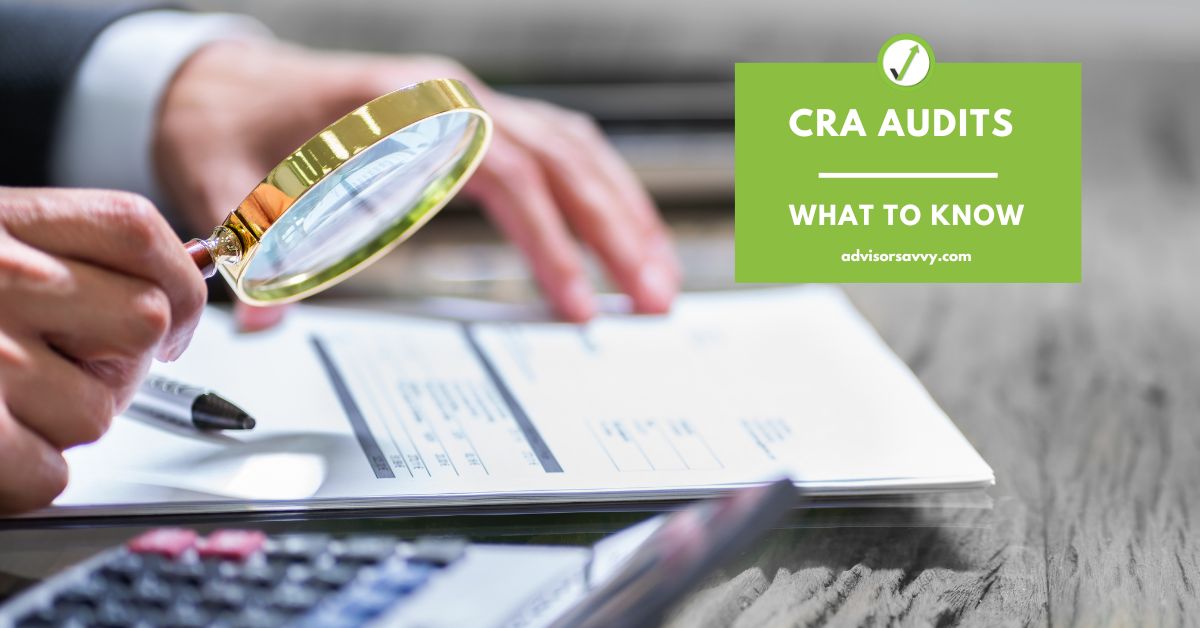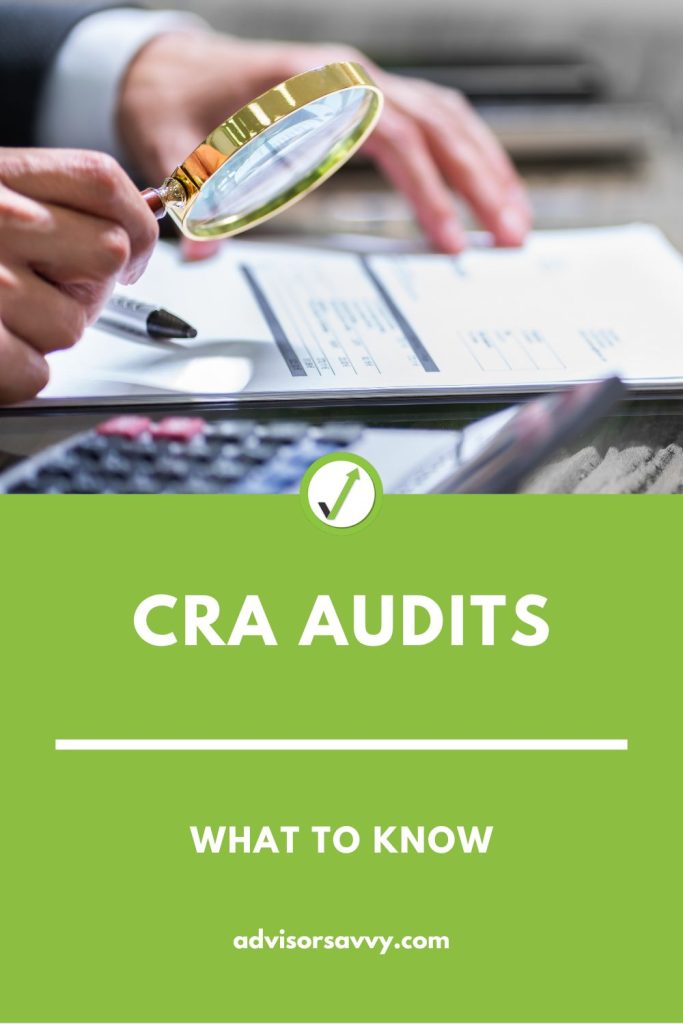
CRA audits can be an intimidating experience. But don’t worry, we’re here to guide you through it. In most cases, CRA audits are a routine procedure and nothing to fret over. In this blog post, we’ll go over what you need to know to make the process as smooth as possible. We’ll also give you some tips on how to prepare for an audit. Plus, what to do if you’re contacted by the CRA. Read on for everything you need to know about CRA audits.

Table of contents
What is a CRA audit?
A CRA audit, or a tax audit as it is commonly known, is a review of an individual tax return. The CRA can audit corporate tax returns or other special types of returns, such as sales tax returns. The purpose is to ensure all of the information provided is accurate and in compliance with current tax laws. This process involves reviewing all of the documents submitted with the tax return. As well as supplementary information such as bank statements and receipts.
Depending on the size and complexity of the tax return being audited, this can be a highly involved and time-consuming process. Ultimately, an audit serves to ensure that individuals are paying their fair share of taxes. While doing everything they can to follow government regulations.
If you have been chosen for a CRA audit, it is important to cooperate fully with your tax agent. This will ensure the smoothest possible process for everyone involved. Generally speaking, communication is key when it comes to CRA audits. A big no-no is dodging calls and letters, this will only make matters worse for you!
Related Reading: Tax Season in Canada
How do I know I’m being audited by the CRA?
When audited by the CRA, there are a few signs to look out for. The first and most obvious indication is that you will receive a letter or other written correspondence from the CRA, notifying you of the audit. In some cases, this may simply be to request additional information or documentation in order to complete your tax return. However, if you are being audited as a result of suspected tax fraud or other wrongdoing, this correspondence could also include an official demand for payment or an explanation of discrepancies on your tax return.
Keep in mind that the CRA communicates with taxpayers primarily through written communication. You can expect correspondence through online mail in the CRA portal, email or a physical letter in the mail. There have been ample scams in Canada where people impersonate the CRA by phone. There are many misleading or illegitimate companies claiming to be working directly with the CRA. They’re using deceptive tactics to get people’s personal information. If you receive a phone call like this, chances are high it’s a scam. Don’t send the individual any money! If you want to be sure, feel free to hang up and contact the CRA on your own. They can verify if you are indeed being audited or owe additional tax.
Related Reading: What happens if you owe CRA money?
How far back can the CRA audit you?
When it comes to auditing tax returns, the CRA typically targets returns for a single year. This allows the agency to focus its resources on a specific time frame. Rather than trying to cover an entire multi-year period at once.
However, in some cases, there may be cause to audit returns from multiple years. For example, if there is evidence of significant discrepancies in income or taxable expenditures across multiple filings, then the CRA may decide to audit back further than one year.
Additionally, the CRA may audit tax returns that are more than four years old under certain circumstances. Such as when there is suspected tax fraud or when taxpayers claim deductions that seem dubious or implausible. As such, when it comes to auditing tax filings with the CRA, it is important to always be honest and accurate in order to avoid unnecessary scrutiny or complications.
Once the four year period has passed, it’s generally safe to say you’re not at risk of an audit for that year. In other words, as of 2022, the CRA can audit back to the 2018 tax year. But they would not be able to audit the 2017 tax year.
Related Reading: How Long to Keep Financial Records in Canada
What triggers CRA audits?
When it comes to tax audits, the first factor the CRA takes into account is whether there are any indications of non-compliance with tax obligations. This could include things like failure to complete tax returns or outright tax evasion. In addition, the CRA also looks at other factors such as frequency and severity of errors on individual tax filings.
Sometimes the CRA will also target certain individuals based on financial returns and risk profiles. For instance, if they suspect a large amount of tax will be recovered from a particular audit, they will absolutely pursue that audit. Also, if a taxpayer primarily earns money through cash, such as a waitress who earns tips, you are considered higher risk for tax purposes. This is because with cash payments the paper trail is weaker. Meaning there’s an opportunity for the taxpayer to omit income on their tax return.
After considering these and other risk factors, the CRA evaluates the role that a particular taxpayer plays in relation to overall Canadian tax compliance. Based on this evaluation, a file is assigned for audit. An auditor will begin to review all aspects of the taxpayer’s finances and income reporting, looking for evidence of any issues or inaccuracies.
Overall, there is no single factor that determines who gets audited by the CRA. Rather, it is a fluid process based on a careful assessment of key risk indicators and identifiers of tax compliance.
Related Reading: GST/HST Credit
What is the red flag for CRA audit?
The CRA can randomly select candidates for an audit. However, they often use reason to select people to audit as well. Below are some red flags the CRA looks out for when performing audits:
- Changes from previous year. If you’ve had a massive change in income, deductions or your refund/balance owing, you might be flagged for an audit.
- Late filings. Those who file their tax returns late may be flagged by the CRA. This is because the risk of making an error is greater when you’re filing a return from several years back.
- Large charitable donations. In Canada, we have a very favourable charitable donation tax credit. However, there are strict rules surrounding the deduction, including having a legitimate tax receipt and making a donation to a qualified charity. If you claim a large donation, the CRA may flag you for an audit to ensure you are eligible for the full deduction.
- Profession that pays in cash. Often, people under report income when they work jobs that pay them in cash, such as waiters or contractors. Sometimes you can be flagged by the CRA simply because you work in a job that pays in cash because it’s viewed as high risk.
- Claiming special deductions. If you claim the home office deduction or vehicle expenses, you may be flagged for an audit. These types of deductions often require special paperwork and documentation — you can’t just claim them. So, the CRA sometimes selects these returns for audits to verify the accuracy.
Related Reading: How Long Does it Take to Receive a Tax Refund in Canada?
What are the chances of being audited by CRA?
Generally speaking, those who have earned significant tips or cash income, are self-employed, or have experienced large changes in their tax return from year to year may be more likely to be targeted by CRA auditors. This is due to the fact that these individuals often have more opportunities for discrepancies in their tax returns. They may also be less familiar with the tax filing process. Other important factors include previous history with the CRA, as well as any indications of potential tax fraud or evasion.
In summary, there is no one definitive indicator that determines whether or not an individual will be audited. It is a result of a combination of various factors that are assessed by CRA officials based on statistical trends and other data. Other than these tidbits of information, it’s difficult to predict CRA audits. Instead, it’s best to focus on completing your tax returns properly and maintaining adequate records, rather than avoiding an audit. If the CRA wants to audit you, they will!
Related Reading: Marginal Tax vs Average Tax
Does CRA check your bank account?
Yes, the CRA can check your bank account and statements. However, they cannot access your bank information at any point in time. They must have a reason to look and normally the information is provided by the taxpayer.
Under the agency’s review process, all individuals are subject to scrutiny. Regardless of whether they are involved in a business or not. This can include scrutinizing the accounts of a spouse or other family members, as well as looking at credit card statements, utility bills, and other financial documents.
The CRA gets leads from the public via its Leads Program, where concerned citizens report suspected tax evaders to the agency. Whether you have reason to believe that someone is dodging your taxes or just want to be sure that you’re doing everything correctly. It’s important to understand how your bank accounts may be viewed by the CRA.
What documentation do I have to provide for a CRA audit?
When facing a CRA audit, there are several different types of documentation that you may be required to provide. Firstly, the CRA will typically have access to a number of different sources of information. Including your filed tax returns, your credit history and property details. To assist with their investigation, you will also need to provide your own personal records, such as bank statements, mortgage documents, receipts, and credit card statements.
Additionally, if any individuals who are not being audited by the CRA have personal records related to your case (such as a spouse or common-law partner, family members, or corporations), you may be required to submit those records as well.
Ultimately, it is crucial to fully understand the CRA’s documentation requirements in order to prepare for an audit and ensure that all necessary information is provided in a timely manner.
Related Reading: Best Free Tax Software in Canada
CRA Audits: Final Thoughts
When it comes to CRA audits, it is important to remember they are a common practice and nothing to be worried about. As long as you comply with the audit requirements and provide all the necessary information, you will likely come out of the process without any issues. In some cases, you may owe more tax, or even get a refund. While the process can be frustrating, there’s an old saying that two things are unavoidable in life: death and taxes!
Oftentimes, an audit simply involves going over your financial records and ensuring that everything is in order. If you keep good records of your transactions and stay organized throughout the process, there is no reason to be concerned about an audit from the CRA. In fact, having a healthy relationship with your local CRA representative can often help things go even more smoothly.
Don’t stress too much about a CRA audit. Just focus on providing the necessary documentation and following through in a timely manner, and you’ll get through it with flying colors!
Read More: Guide to Tax Credits: How to Get a Bigger Tax Refund

